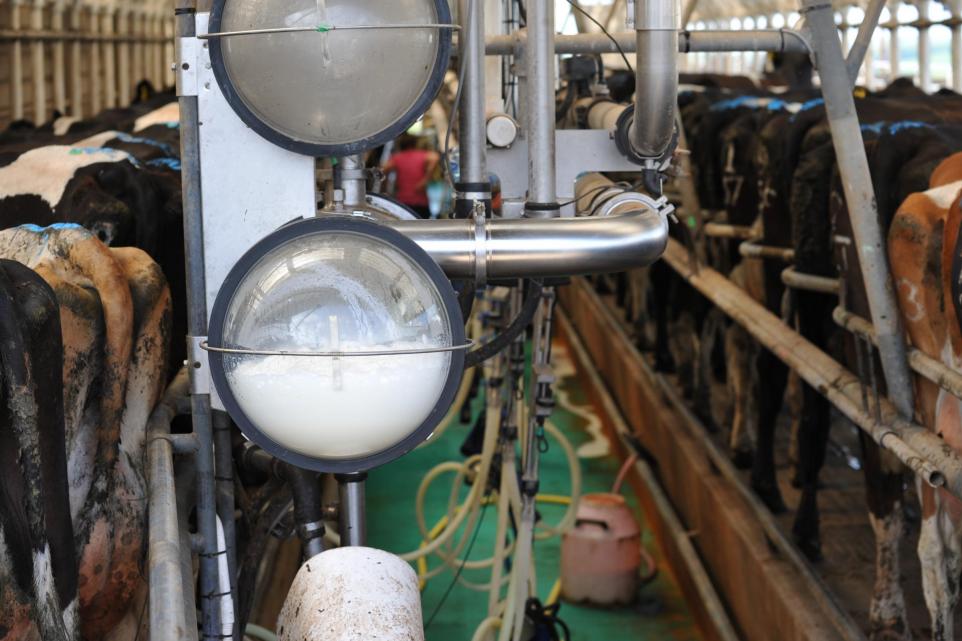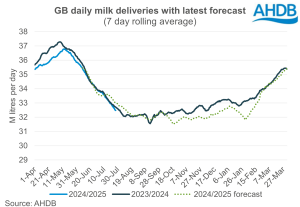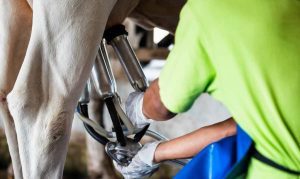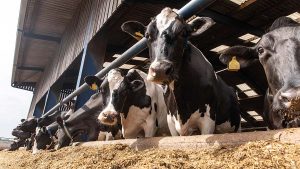
They say a more generous allowance to spread slurry and fertiliser on their land is needed to avoid the drop.
Unions have called on the government to sanction a new licensing scheme to allow a 250kg a hectare (ha) annual holding nitrogen limit instead of the 170kg set out in the legislation.
There are similar schemes in England and Northern Ireland.
If a 170kg/ha limit is imposed, according to AHDB modelling the stocking density on Welsh dairy farms would need to reduce by 17%.
The equivalent reduction in annual milk production would be 336 million litres if the stocking density is lowered strictly through reducing the number of animals, warns dairy farmer and NFU Cymru president Aled Jones.
Want to make sure all the latest farming news from Wales is delivered straight to your door? Subscribe to the print edition of Wales Farmer on 0800 052 0198.
The ripple effect would be felt by other farming sectors, he suggests.
“The stocking limit imposed by the regulations would reduce the likelihood of dairy farms to take in sheep over winter, while a reduction in the number of dairy animals will have a knock-on effect on the levels of beef production in Wales,’’ says Mr Jones.
The union said it had “clear evidence’’ to demonstrate that a 250kg/ha limit would not damage the environment.
That evidence is based on the nutrient uptake of grass, Wales’ climatic conditions and the length of its growing season.
But how the licensing scheme would work and how many farms would fit the eligibility criteria is a source of concern.
The Farmers’ Union of Wales said applications must be considered on a case-by-case basis otherwise farms that are near rivers with poor water quality resulting from pollution from other sources could be denied a licence.
The union also wants a shift away from current fixed closed periods for slurry spreading and storage requirements set out in the regulations.
It is urging the government to formally review how effective the regulations are likely to be and, until it does that, wants their introduction delayed.
Both unions were responding to the government’s consultation on the regulations, which closed on February 17.
More than 1,400 farmers and businesses operating in the food supply chain submitted responses too.

























